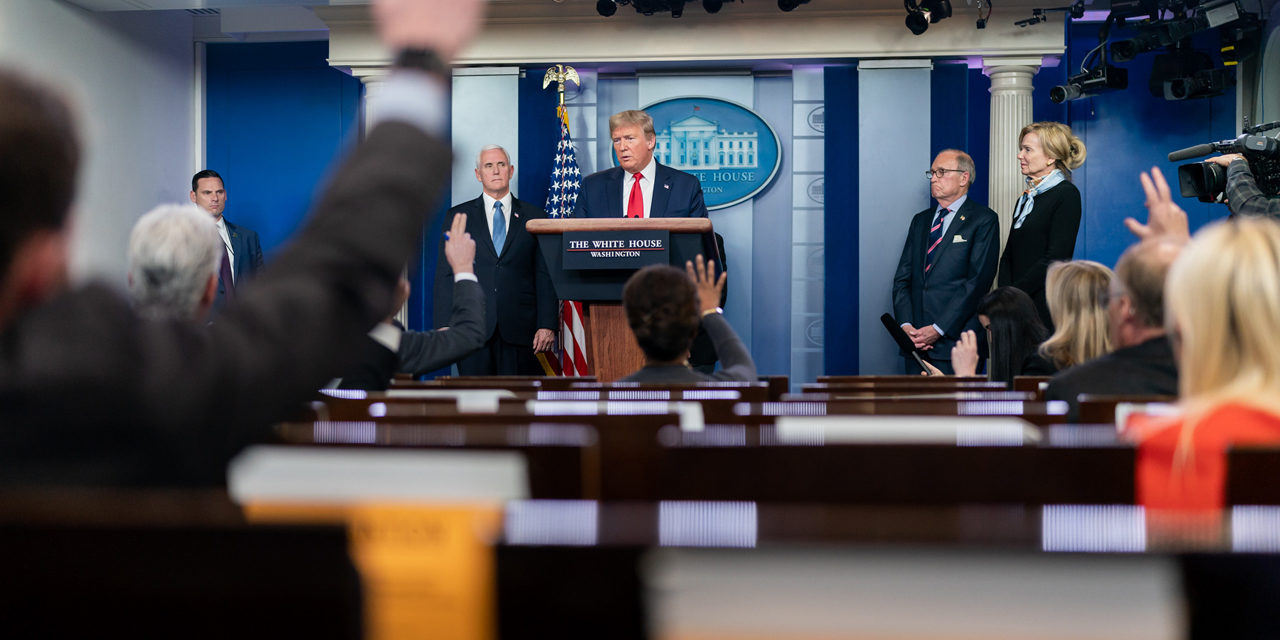In a truly stunning article, Michael M. Grynbaum, media correspondent for The New York Times, admits that the American people are listening in great numbers and trusting the President and his COVID-19 Task Force when it comes to information they need to make decisions about their personal lives. Grynbaum says these regular briefings have, as he puts it, “roughly the viewership of the season finale of ‘The Bachelor’.”
A major new CBS/YouGov poll, lends support to his observation. It found the general population has slightly more trust in getting accurate information on the coronavirus crisis from President Trump than the media itself. In terms of over-reacting and playing up the crisis, the poll shows dramatic differences. Forty-five percent of Americans believe the national media is overreacting when talking about the crisis while only six percent believe the President is. Fifty-one percent think Trump is getting it “about right” when talking about it, and only forty-seven percent believe the national media is.
The article’s title indicates the media might have a social responsibility to keep Americans from seeing these briefings for themselves: “Trump’s Briefings Are a Ratings Hit. Should Networks Cover Them Live?” Why? Because, according to Grynbaum, the President “has repeatedly delivered information that doctors and public health officials have called ill informed, misleading or downright wrong.”
Grynbaum lists the supposed mistruths the President has spoken. None of them are actual lies. They are examples of either hyperbole or statements where the President is short-handing more complex topics. It is likely most citizens are capable of discerning such things when listening to the President.
But Grynbaum does exactly what he accuses the President of. He tells us “a man in Arizona died after he and his wife consumed a form of chloroquine, a drug that Mr. Trump has promoted on the air.” It was well-known this was untrue when he wrote his piece.
The man did not have COVID-19 nor did he ingest any medicine. What he took was a large dose of aquarium cleaner. The article Grynbaum cited explained this, but he failed to include that important point in his own piece. The New York Times’ fact-checkers could have easily learned the real story in the press release released by the hospital where the man was taken and died. It would have only taken a simple google search.
Is it any wonder why the public’s confidence in the media for reliable information regarding the President’s actions is waning?






